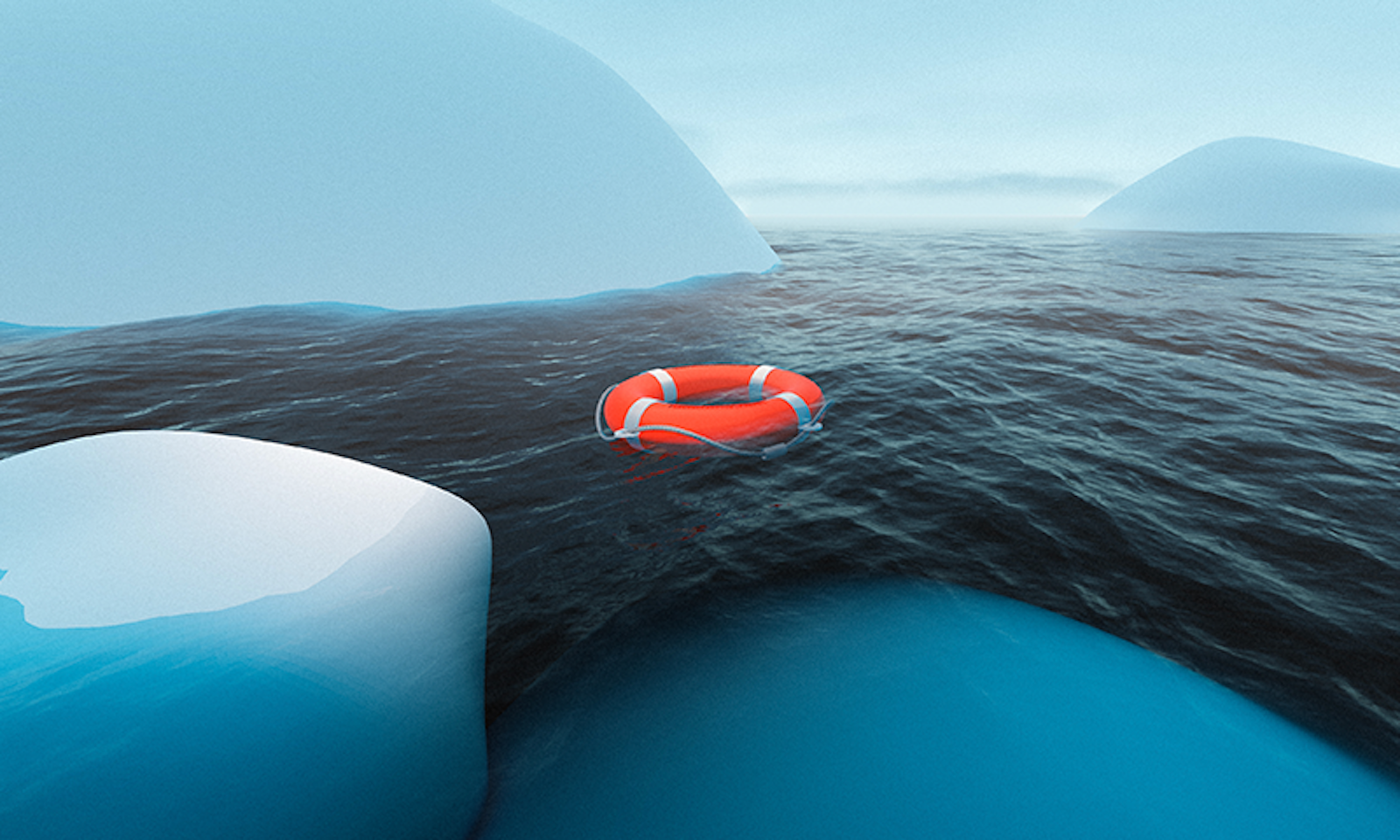“Our remedies oft in ourselves do lie…”
—Shakespeare, All’s Well That Ends Well
Our Earth has existed for 45 million centuries; and humans for a few thousand. But this century is the first when our species is so numerous—and so demanding of energy and natural resources—that we risk collectively despoiling our planet. It’s surely an ethical imperative that we should not deny future generations the wonders and beauty of the natural world. Policy must, in the words of the Brundtland Commission, “meet the needs of the present—especially the world’s poor—without compromising the ability of future generations to meet their own needs.” This requires a massive transformation in our lives—how we derive our energy, and how we feed ourselves. It’s an inspiring challenge for the younger generation, and an investment crucial for the future of humanity—and indeed all life on Earth. But it requires a massive realignment of priorities in all nations—a change in individual attitudes, as well as in public policy.
The Anthropocene
All the living organisms on Earth are passengers on a voyage to a new world. Humans have transformed the surface of the Earth so completely that future geologists will view our time as a new era in Earth history. Paul Crutzen invented a new word, Anthropocene, to describe it. Like the other transitions between eras in the geological record, this one could be accompanied by massive species extinctions.1 It is not as though we have been taken by surprise. For more than half a century, science has warned that climate change will disrupt our civilization beyond easy repair.
Descendants in a happier future would equip their planet with awareness systems.
Decades of worldwide publicity have not saved planet Earth from approaching the threshold of irreversible climate catastrophe.2 Denying the urgency of climate change action could prove to be the ultimate global “tragedy of the commons”—a term introduced in Hardin’s classic book analysing how, for instance, “free” common land can be eroded by irresponsible overgrazing.3 Economists now argue the global economy must be restructured over the next 30 years to create a zero-carbon emission society,4 the necessary (but not sufficient) condition for climate stability.
Anthropocene challenges go beyond economics and technology. Zero-carbon does not free society of mortal threats to ecology, food security, or public health. The United Nations’ Sustainable Development Goals are the most inclusive attempt yet to balance the requirements for a hospitable environment and a just society. Religious authorities, notably Pope Francis, maintain that only a transformation of human values will produce both the ecological conditions for sustainability and the social justice essential to the stability of society.5
The Crisis of the Anthropocene
Planet Earth is on a perilous course. Society’s delayed adjustment to Anthropocene dynamics has amplified risks to global, regional, and local human security6 and threatens a comprehensive crisis, especially if risks materialize in reinforcing ways. This, the Crisis of the Anthropocene, is likely to be most acute when world population peaks—according to U.N. demographers this should happen before the end of the century. The number of humans at risk will therefore be largest when resource consumption and stress on eco-environmental systems are maximal and extreme climatic events disrupt ecologies at their most vulnerable. Since threats we presently think distinct are the most likely to interact and cascade then, we will not have the luxury of dealing with them one at a time, as we are trying to do today.
Planetary Agency
The nations of Earth need to transform their economies in little more than one human generation to meet the challenges posed by Anthropocene dynamics.
The word, Anthropocene, implies a material causal relationship (hazily articulated at present) between what global society chooses to do and how planetary eco-environmental systems evolve. Human communities have modified their local environments since before the Agricultural Revolution,7 but ours is the first century in the 20,000 that the human lineage is recognizable in the fossil record that humans can determine the fate of the entire biosphere.8
Denying the urgency of climate change is the ultimate tragedy of the commons.
Now our task is to exercise a familiar form of local agency planetwide; could planetary agency be exercised in time, a tragic outcome would not be inevitable. Even the possibility that human agency has planetary scale means that Anthropocene thought has an ethical dimension—what global society chooses to do shapes the eco-environmental systems that sustain later generations.
From now on, what we think as a planet is what our children get as a planet. However crucial policy and diplomacy may be, global agency ultimately requires that billions of micro-choices made every day by billions of human beings be (at least slightly) biased in favor of altruistic action. Whether human wills can be aligned (and planetary agency exerted) depends on the clarity of our collective thinking and how well the intent to apply that thinking is organized. As individuals we are acutely attuned to differences in each other’s psychologies. We know there are many situational reasons for action or inaction—but when we ask what moves populations to action or leaves them in inaction, we need to know what is common to large numbers of people.
The Duality of Human Nature
Our response to imminent threats is rooted in how human minds think. Human beings have hearts and minds, ids and egos, an unconscious and a conscious. This is not a new idea. Ancient Greek philosophers, Shakespeare, and Freud understood that emotion and rationality compete for human attention. The dual nature of human thought has found institutional expression in Western societies in bi-cameral legislatures9 and the separate authorities of church and state. What is new is that modern research in psychology and neuroscience has established a species-wide basis for this ancient insight. Every human on Earth has two systems of neural circuitry; psychologist Daniel Kahneman10 calls them systems 1 and 2. System 1 processes the wants, fears, and perceptions of the present, while system 2 organizes them into concepts that guide future actions. It takes psychological energy to raise percepts in system 1 into concepts in system 2, and consonance of systems 1 and 2 to overcome the inertia to act.
Harmony of heart and mind is the precursor to action. People generally focus on the short-term, and their immediate experience11; this makes it particularly difficult to overcome sustainability’s inherent time displacement disincentive: We resist risking present well-being to protect people we don’t know living in a future shrouded in uncertainty.12 We educate children, provide for grandchildren, give to charity, and preserve artifacts that we value in the here and now. Personal altruism goes that far, but not far enough to provide for some foreign family’s descendants two centuries from now. Why risk present prosperity to offset risks that materialize in the future? We only live once; our hearts are not in the game.
Intergenerational Altruism
Intergenerational altruism intelligently exercised protects humanity’s future on the planet. Political, industrial, and financial leaders then make decisions with as much regard for future consequence as for past precedent. With responsibility for the future embedded in technologies and institutions, the present leverages the future. The future is infused with positive expectations and our guilt about the world we are sending our children into is relieved. We believe society can advance. The abolition of slavery in the 19th century and colonialism in the 20th tell us that adoption of new social norms is possible despite seemingly refractory conflicting interests, but it takes several generations to resolve the conflicting interests, and the resolution is never perfect.
Our task is to exercise a familiar form of local agency planetwide.
Intergenerational altruism came more easily to the cathedral builders of the European Middle Ages, where people believed their descendants will live much as they did. The pace of change quickened after the Scientific Revolution, and now it is hard to imagine how the next generation thinks. Yet some institutions have survived generational change. Most cultures have some form of religion. Religion’s example makes clear that resilient ethical norms, enduring institutions, and shared values are not built primarily by rational communication. Methods provoking Kahneman’s system 1—charisma, renunciation, art, iconography, ritual, regalia, holidays, cosmology, story, myth—are employed to motivate altruistic behavior. In the secular canonization of Greta Thunberg, a 21st-century Joan of Arc, we see a system-1 technique deployed on behalf of the planet. In a similar vein, Earth Day is the first new holiday of the Anthropocene Era.
It is unlikely we will know in advance whether society can aggregate the social and psychological resources to overcome the time displacement disincentive inherent in the planet’s sustainability challenge; Kahneman sees “no path to success on climate change.”13 The countervailing view is exemplified by economist Thomas Piketty14 and psycholinguist Stephen Pinker,15 who document major increases in life expectancy, world economic prosperity, and societal well-being in the past two generations. Diplomacy also kept the lid on the Cold War. If we did those things, this view holds, we can create a society and planet in harmony if we put our minds to it. Social well-being may have come first in the beginning of the Anthropocene era, but now it is time to rebalance.
Planetary Cyber-Civilization
A World Wide Web of knowledge and feeling is engulfing almost every human being on Earth. A technology that seems well-suited to help humans think collectively mirrors the way we think individually: The Web has evolved the capacity to communicate in Kahneman’s systems 1 and 2. Social media employs a communication platform devised by rational engineers to elicit feelings and attitudes. With the capacity to disseminate ideas with feelings attached comes power to promote action, good or bad. Social media enables interaction with friends and colleagues, anywhere in the world, but there is a downside: It turns out to have unforeseen power to move the lonely misfits of society to depraved acts, and it allows extremists to readily spread their views and generate “fake news.” The technologies enabling the Web to communicate emotional states are at an early stage of development. Imagine that smartphones could sense indicators of mood like perspiration, electrical activity, or neurotransmitters; biophysical indicators of feeling state would accompany words and images more reliably than emojis. Your smartphone’s voice could be trained to use language, tone, and accent that elicit your deepest responses. We have to hope that the Web, the first creation of the Anthropocene era, is evolving, along with Anthropocene civilization, the capacity to organize global agency.
If we do these things, we can create a society and planet in harmony.
Beyond the Anthropocene Crisis
There is no book of recipes on how to rescue a planet, no magic checklist to go down.16 Even if the Web did its part by establishing receptivity to intergenerational decision making, it would avail little if decisions were wrongly conceived. Humanity’s system 1 and system 2 capacities will both be strained. Fortunately, crisis conditions need not last forever. Global population, the ultimate Anthropocene stressor, is expected to peak during this century.17 If a sustainable society emerges from the demographic transition in progress,18 humans can look toward the longer future. Unfortunately, science cannot guarantee that we will retain the present planetary environment. Transitions in natural systems seemingly beyond human capacity to reverse are in progress,19 such as species extinctions, ocean acidification, sea level rise, polar ice loss, permafrost melt. The technologies used to manage the planet could have adverse side effects, or their very success render the infrequent breakdown catastrophic.20 Progress is hard to discern through the noise of highly visible disasters, but by looking beyond setbacks, we can reinforce trends that converge to a satisfactory solution. Satisfactory does not mean satisfying; it will be a different planet that survives, but one that provides a sustainable future for the organisms that build it.
Planetary Consciousness
We cannot expect that threats to life on Earth would magically disappear, but we can hope they can be stabilized. Our descendants in that happier future would equip their planet with situational awareness systems that sense small deviations from stability and prevent them from going out of control. Their awareness networks could evolve into a watchful intelligence given a long future. One can imagine a network of networks that synthesizes continuous awareness of the changing states of the planet and society and instinctively propagates adaptive responses. This is a property of consciousness. Contemporary science is silent on whether consciousness is a natural stage in the evolution of intelligence-bearing planets, for we know no other such planet. If we did know of one, we could ask it whether planetary consciousnesses that survive have consciences. ![]()
Martin Rees is an astrophysicist and cosmologist, and the United Kingdom’s Astronomer Royal. He is based at Cambridge University where he has been Director of the Institute of Astronomy and Master of Trinity College. He is a member of the U.K.’s House of Lords, and was President of the Royal Society for the period 2005 to 2010. In addition to his research publications, he has written extensively for a general readership. He has been increasingly concerned about long-term global issues. His most recent book is If Science Is To Save Us (Polity Press; publication September 2022).
Charles F. Kennel’s early career was as a space scientist. He was a professor at UCLA and then associate administrator at NASA, leading Mission to Planet Earth, the world’s largest Earth science satellite program. NASA influenced him to go into Earth and climate science, and he became Director of the Scripps Institution of Oceanography at the University of California, San Diego. He is a Distinguished Visiting Scholar at Christ’s College, Cambridge.
Acknowledgment: We are indebted to Partha Dasgupta, Veerhabradan Ramanathan, and David Victor for illuminating discussions. CFK was introduced to the idea of thinking planets by the MIT physicist Philip Morrison.
Lead image: Xyman / Shutterstock
Footnotes
1. Pimm, S. Biological extinction at the Vatican. Nature Ecology & Evolution 1, 0136 (2017); Dasgupta, P., Raven, P., & McIvor, A. (Eds.) Biological Extinction: New Perspectives Cambridge University Press (2019).
2. Yangyang, X., Ramanathan, V., & Victor, D.G. Global warming will happen faster than we think. Nature 564, 30-32 (2018).
3. Hardin, G. The tragedy of the commons. Science 162, 1243-1248 (1968).
4. See, for instance, Victor, D.G., Geels, F.W. & Sharpe, S. Accelerating the low carbon transition: The case for stronger, more targeted and coordinated international action. UK Government and the Brookings Institution (2019).; Azevedo, I., Davidson, M.R., Jenkins, J.D., Karplus, V.J., & Victor, D.G. The paths to net zero. Foreign Affairs (2020).; Pye, S. et al. Pathways to deep decarbonization in the United Kingdom. iddri.org (2015).
5. See Dasgupta, P., et al. Climate change and the common good. The Pontifical Academy of Sciences and the Pontifical Academy of Social Sciences (2015).
6. Falk, J., et al. Beyond 2020: Converging crises demand integrated responses. Sustainability Science 16, 691-693 (2021).
7. Ellis, E.C., et al. People have shaped most of terrestrial nature for at least 12,000 years. Proceedings of the National Academy of Sciences 118, e2023483118 (2021).
8. Rees, M.J. If Science Is to Save Us Polity Press, Cambridge, U.K. (to be published November 2022).
9. George Washington is said to have explained to Thomas Jefferson that the Senate is needed to soften the passions of the popular assembly, much as a saucer is used to cool overheated coffee.
10. Kahneman, D. & Egan, P. Thinking, Fast and Slow Farrar, Straus and Giroux, New York (2011).
11. Thaler, R.H. & Ganser, L.J. Misbehaving: The Making of Behavioral Economics WW Norton, New York (2015).
12. The 20th-century German playwright, Bert Brecht, said it well: Erst das Fressen und Dann die Moral (first we feed our faces and then we worry about morality).
13. Quoted by George Marshall, in Understanding faulty thinking to tackle climate change. New Scientist (2014).
14. Piketty, T. Capital in the 21st Century Belknap Press, Cambridge, MA (2014).
15. Pinker, S. 2018. Enlightenment Now: The Case for Reason, Science, Humanism, and Progress Penguin, New York (2018).
16. The international climate negotiations are based on the premise that we can be on a smooth path to climate stabilization so that incremental decision making is useful. However, a premise is not a promise.
17. Barrett, S., et al. Social dimensions of fertility behavior and consumption patterns in the Anthropocene. Proceedings of the National Academy of Sciences 117, 6300-6307 (2020).
18. National Research Council. Our Common Journey: A Transition Toward Sustainability National Academies Press, Washington, D.C. (1999).; Kennel, C.F. The gathering Anthropocene crisis. The Anthropocene Review 8, 83-95 (2020).
19. Rockström, J., et al. Planetary boundaries: Exploring the safe operating space for humanity. Ecology and Society 14 (2009).
20. Rees, M. On the Future: Prospects for Humanity Princeton University Press (2018).


























